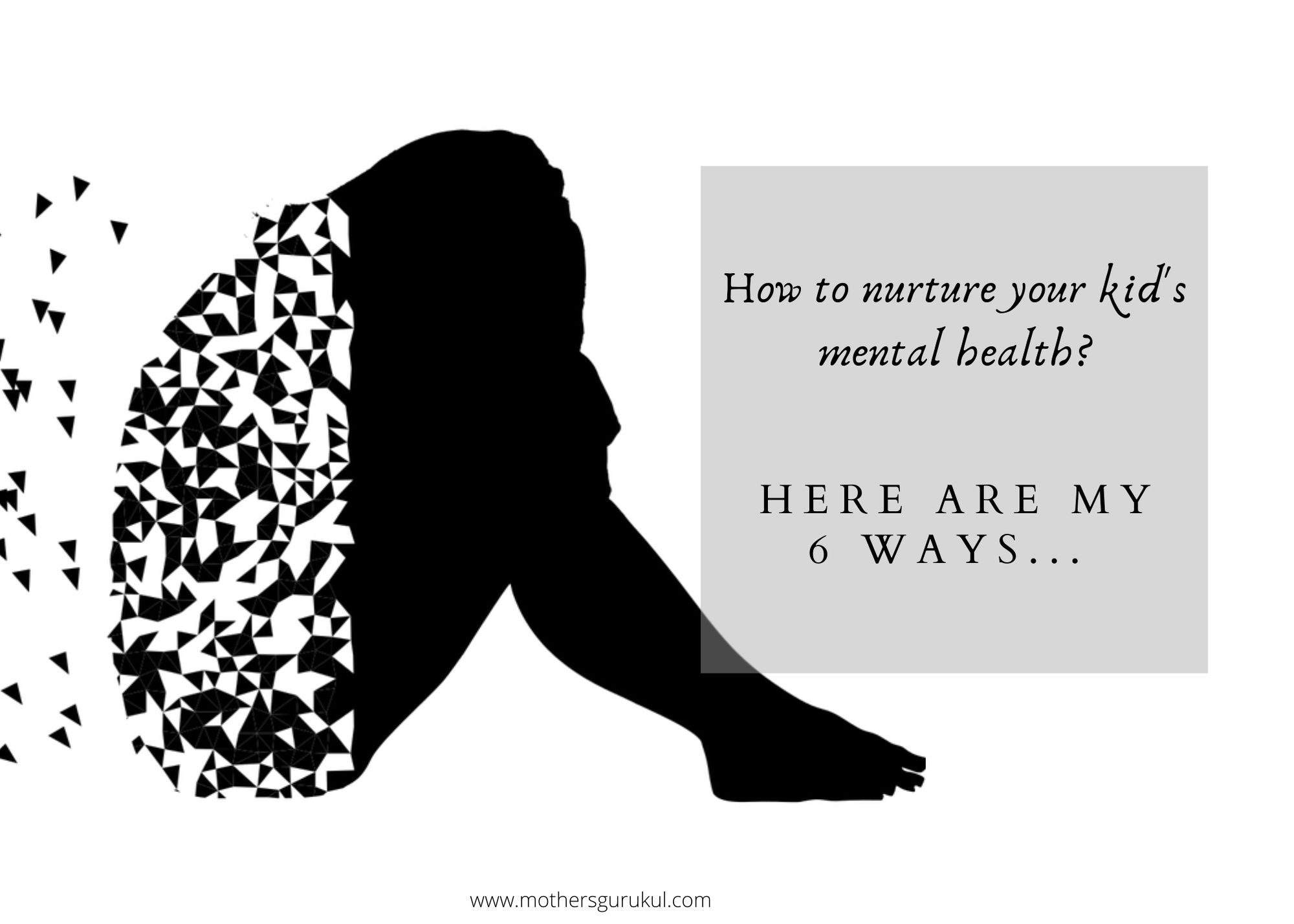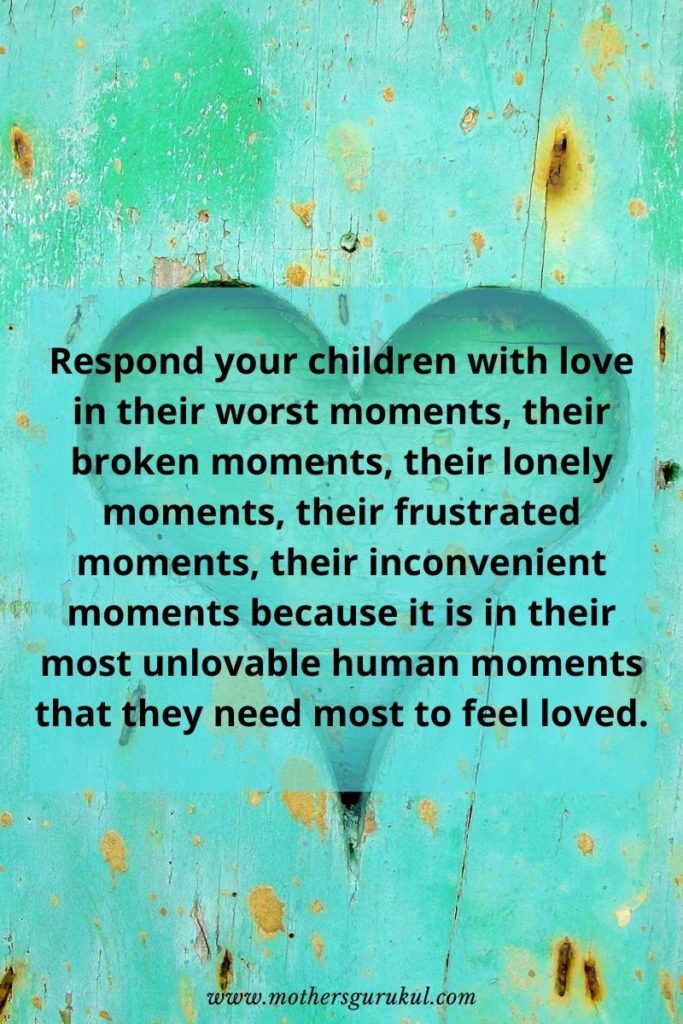It is easy to emphasize and address the suffering we can see with our eyes, like vision problems, dull skin, and wounds. We can take steps to heal them. But what about the scars which can’t be seen. These wounds are deep down within us that others cannot see. Only the one who is experiencing it daily can feel it. We often think that childhood is the time to be carefree and enjoy the days with friends. But what if any child is going through such an emotional state which is affecting his/her overall development? Not all the kids express their feelings, and especially during weak moments, they don’t open up. And when left unnoticed, undiscussed, it directly affects mental health. Isn’t that scary? So, how can parents recognize their kid’s mental health and nurture it?

Parents and family members are usually the first to notice if a child has problems with emotions or behavior. Your observations, along with those of teachers and other caregivers, can help determine whether you need to seek help for your child.
The following signs may indicate the need for professional help:
- Decline in school performance
- Poor grades despite strong efforts
- Constant worry or anxiety
- Repeated refusal to go to school or to take part in everyday activities
- Hyperactivity or fidgeting
- Persistent nightmares
- Persistent disobedience or aggression
- Frequent temper tantrums
- Depression, sadness, crying, or irritability
- Wanting to stay alone
- Sitting ideal most of the time or daydreaming most of the time
- Subtle clues while talking about how life is not great
- Loss of appetite
- Less energy
- Sleeping issues
According to mentalhealth.org.uk, Mental health problems affect about 1 in 10 children and young people. They include depression, anxiety, and conduct disorder and are often a direct response to what is happening in their lives.
A recent analysis of 2016 National Survey of Children’s Health data published online in JAMA Pediatrics indicated that as many as one in six U.S. children between the ages of 6 and 17 has a treatable mental health disorder such as depression, anxiety problems or attention deficit/hyperactivity disorder (ADHD).
You can now listen tune into this topic on Mother’s Gurukul Podcast or click on the link .
So, how can you nurture your kid’s mental health?
Talk to them: I can’t stress over the need to talk to your kids daily. We all talk to our kids. Then why this reminder? Right? Now, do we ask thoughtful questions like how are you doing? This question looks pretty simple, and the answer is also pretty simple. But when you ask this or any other question for that matter, do you pay attention to their expressions? Most of the time, we ask them while doing something else. The first thing is when you talk to them, look at them, and engage in that conversation. Remember, expressions speak louder than words.
Help them grow self-esteem and make them feel good about themselves: Praise their achievements. It can be anything simple to something big. Ask a question about their interests or any new skills they have learned. Help them in setting realistic goals.
Practice affirmative statements: Practicing self-affirmative words can do wonders. It brings positivity. Think of having them in front of their study desk. If they start their day reading affirmative statements, then it will surely bring positivity within them.
Provide them a safe and healthy environment: We often blame media for bad influence. But have we ever thought that how we talk to each other at home can also affect kids? I am not talking about young kids only. Kids of any age get affected by an unhealthy, tensed environment at home.
Teach your child how to relax when they feel upset: This could be deep breathing, doing something calming (such as a quiet activity they enjoy), taking some time alone, or going for a walk. Talk about possible solutions or ideas to improve a situation and how to make it happen. Try not to take over.
Take care of your mental health first: Role modeling is the backbone of parenting. While we try to nurture our kid’s mental health, we should set an example by taking care of our mental health.

Early recognition of your kid’s mental health is always good for both parents and kids. And when it is recognized, then it has to be addressed immediately. Parents are also human beings. It is obvious to get anxious when our child is suffering from mental health issues. Our mind gets cluttered with many questions. You may want to read Myths about child mental health. Always remember, “what mental health needs is more sunlight, more candor, and more unashamed conversation. – Glenn Close”
Further Readings: https://www.apa.org/pi/families/children-mental-health
Source: https://www.aafp.org/news/health-of-the-public/20190318childmentalillness.html

This is an awesome subject you have touched on. Kids these days are going through stressful times even without the pandemic. The dialogue should always be open I feel with the kids. They should know that they can share anything with a parent, From sex to crime!
I so very agree to you Harjeet.
Second that Harjeet.
I guess as a parent it is our responsibility to keep a good environment and open communication This is a very important topic which needs to be addressed and thanks for doing that.
I agree Jyoti. Mental health in kids often goes unnoticed.
Mental health of everyone is so important. Your podcasts are very helpful and informative. It’s easy to feel overwhelmed and stressed.
Thanks Kinshoo. I am trying my best to brig positivity through my podcasts.